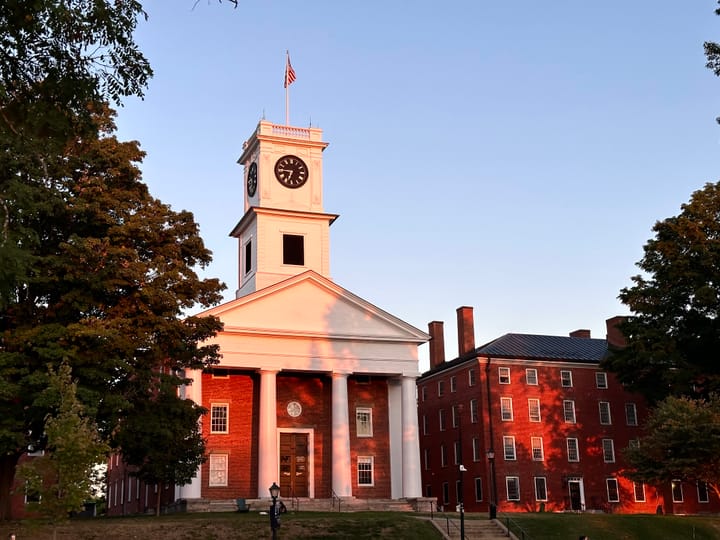CDSL Renamed as the Class & Access Resource Center
The center formerly known as the Center for Diversity & Student Leadership (CDSL) is now the Class & Access Resource Center (CARC) going forward. The new name was brought about by student advocacy for a name emphasizing the center's activities.
The resource center previously known as the Center for Diversity & Student Leadership (CDSL) recently announced that it will now be known as the Class & Access Resource Center (CARC). The change was motivated by student advocacy for a name that would better reflect the work that the center does and the student populations that it serves.
The CARC works to provide support, advocacy and community building for first-generation and/or low-income (FLI), transfer and veteran students. According to the CARC’s social media page, the center’s new name “brings together several things that students have identified as particularly important: (1) building community around shared experiences of classism; (2) navigating elite institutions with less access to valued forms of social and cultural capital, and; (3) providing resources to support access to and through college for folks who have been historically marginalized and excluded from higher education, especially non-traditionally aged transfer and veteran students.”
Discussions of changing the name began among staff at the center at the beginning of this year, reported Diana Tiburcio ’22, who worked at the CDSL as a program organizer. “We were talking about changing the name of the CDSL to encapsulate more of what we actually do in the center,” they said.
“The CDSL — what does that mean?” added Edmund Kennedy ’23E, also a program organizer for the center. “When I spoke to students — whether they were FLI or transfer students — they often didn't know what the CDSL was or what it did, and that was kind of common across the entire student body. I wanted us to have a name that made sense for what we did and who we supported.”
These conversations prompted the creation of an open survey asking for name suggestions, which was sent out to the entire campus community, said Lupita Mendez, director of the CARC. After reviewing the suggestions and narrowing them down to a few options, the center presented the names to students in another survey asking for feedback, which allowed them to make the decision on the final name.
“It felt really important that, as much as we took input from the whole campus community, the final decision-making should be done by students, because that’s who uses the space,” Mendez explained.
Coming up with a representative name was difficult, said Kennedy. “I think one of the big issues with naming any resource center is that you try to encompass everyone, so that everyone feels like they have a space there. With the communities that we support, there's so many that it's hard [to do that].”
Mendez explained that the ever-changing terminology for describing different identities only adds to this difficulty. “We could have had an acronym that just incorporated each of those identities [that we serve], but one of the reasons we decided not to go with that is that some of those words may change over time,” she said. “I think ‘low-income’ is already on its way out as a preferred word to use and, in a lot of ways, is not the best language to encapsulate that community.”
Ultimately, the impacts of class presented itself as the commonality among the different communities the center serves. “I think we realized that a lot of the work that we were doing in the center centered around the FLI experience, and that [the different student populations we serve] were all coming [to the center] mostly for financial resources or wanting to talk about class or even the way that intersects with their other identities,” said Tiburcio.
Access provides the other link between the different communities, said Mendez. “Social class unites a lot of the groups that we center in our work, but so does access to college and access through college and even beyond. That's also a lot of what we've been doing with all the students we serve — so much of our work is around facilitating access to resources.”
The new name provides an opportunity to “re-introduce to the student body and to the campus who we are and what we're all about,” said Kennedy. Through his work going forward in the center, he hopes to create a space for education around class and what it entails, and expand conversations about class on campus.
Josue Sanchez Hernandez ’22, who also worked for the center and played a role in bringing about its new name, added, “All of us have a class status, and I feel like that’s not something that's really acknowledged. I think the [new] name brings class to the forefront and kind of forces students on this campus to think about where they lie within the spectrum of class status. It starts conversations about how we can be more inclusive of certain students and build community around these identities that are so important to us.”





Comments ()